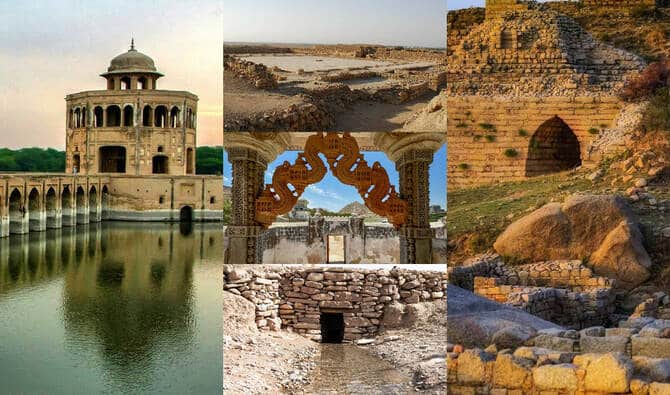ISLAMABAD: Pakistan has announced it will nominate five culturally and historically important sites for inclusion in the UNESCO World Heritage List, state broadcaster Radio Pakistan reported on Friday. The move aims to preserve the country’s rich archaeological legacy and gain global recognition for its diverse heritage.
The nominated sites include the ancient Karez water management system in Balochistan, the Mughal-era Hiran Minar in Punjab, the Buddhist ruins of Ranigat in Khyber Pakhtunkhwa, and two key locations in Sindh — the historic Port of Banbhore and the cultural landscape of Nagarparkar.
If UNESCO approves the nominations, Pakistan will increase its total World Heritage Sites from six to eleven, marking a major step forward in heritage preservation and cultural tourism.
Pakistan currently maintains six UNESCO-recognized sites: Mohenjo Daro and the Makli necropolis in Sindh; Taxila, Rohtas Fort, and the Fort and Shalamar Gardens in Lahore, Punjab; and the Buddhist monastic complex at Takht-i-Bahi and remains at Sahr-i-Bahlol in Khyber Pakhtunkhwa.
By nominating these five new sites, Pakistan seeks to promote its pre-Islamic and Islamic-era heritage, boost cultural tourism, and deepen international cooperation in heritage conservation. These sites showcase centuries-old architectural, hydrological, and religious traditions — from Gandharan Buddhist ruins to advanced irrigation techniques.
The nomination of the Karez system would mark Pakistan’s first entry in the traditional water management category. This ancient underground aqueduct system remains functional in parts of Balochistan today.
The 16th-century Hiran Minar complex near Sheikhupura also stands out. Its nomination would spotlight Mughal-era hunting retreats and water structures that have yet to receive international recognition.
UNESCO’s World Heritage Committee reviews such nominations each year, evaluating them based on historical significance, cultural value, and preservation efforts.





